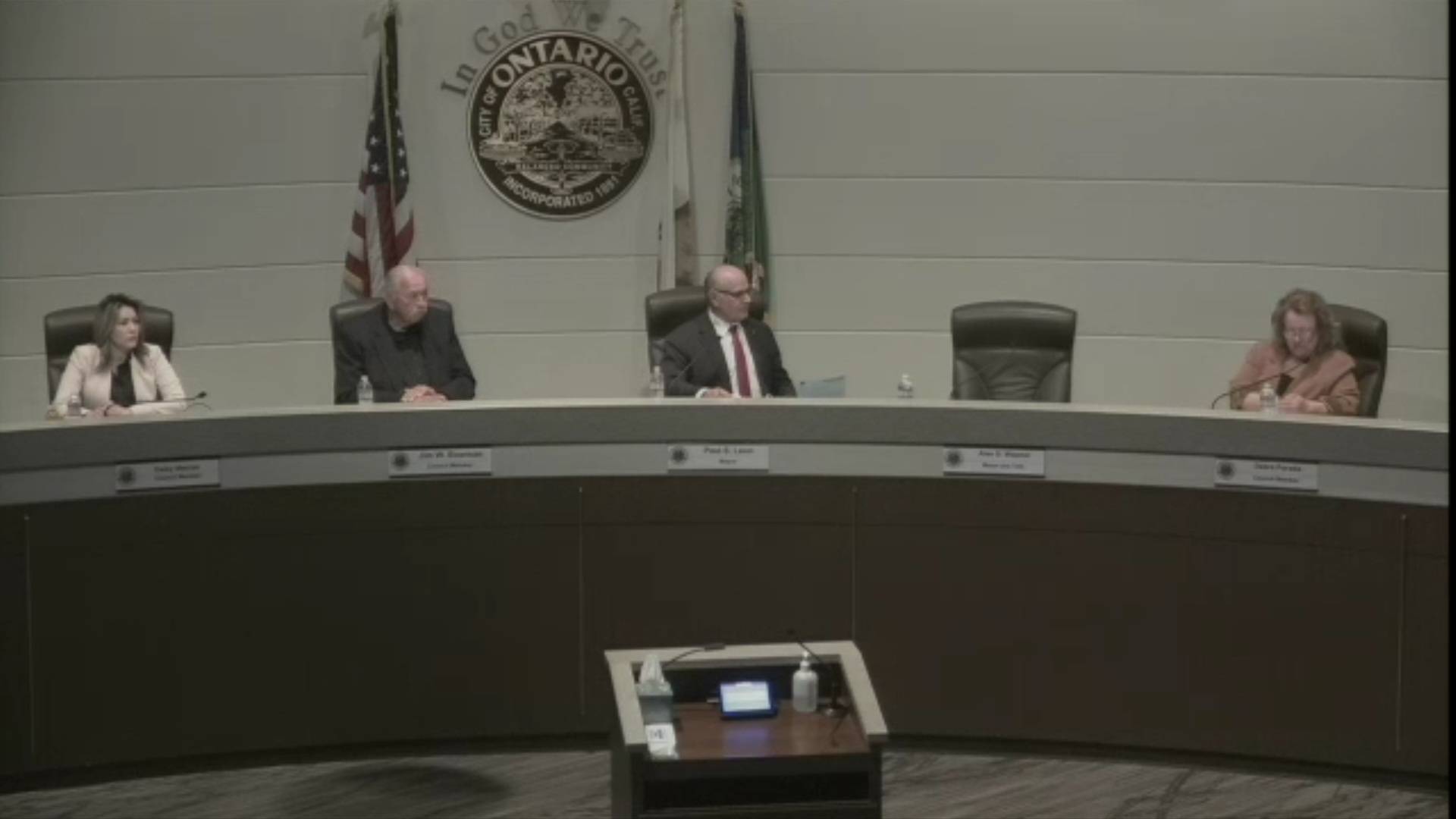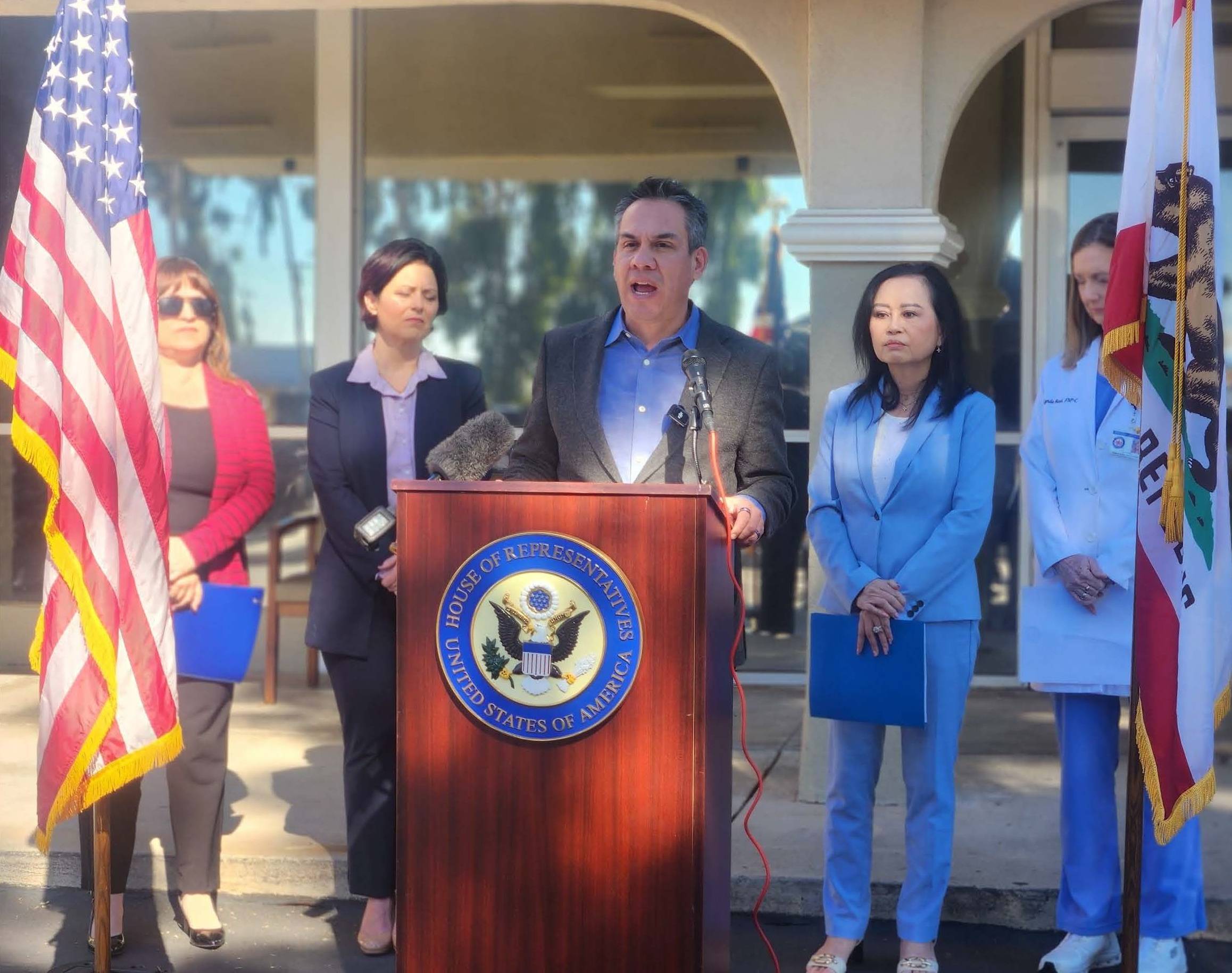Screenshot of Ontario City Council’s meeting held on October 7, 2025. / Courtesy Photo, City of Ontario
Ontario, CA — After a meeting on Oct. 7, the Ontario City Council voted 4-0, with Mayor Pro Tem Alan Wapner absent, to approve rate increases for water, sewer and solid waste services following a Proposition 218 public hearing at City Hall.
The action capped an evening that began with public comments on police conduct, homelessness and local infrastructure, and ended with a detailed presentation by Utilities General Manager Scott Burton explaining the proposed rate plan for the current and nextfiscal year.
Burton told council members that the utility departments’ combined budget for water, sewer, recycled water and solid wastetotals about $195 million for the current year, with personnel, operating expenditures and capital improvements driving roughly 40% of costs.
“These are not taxes,” he said, noting that the city’s enterprise funds are legally separate from the general fund. “We have toincorporate charges that cover all the costs we expect to incur.”
He explained that Ontario’s recommended increases, about $8.65 per month for the average single-family customer using 14 units of water, reflect growing expenses in energy, imported water, chemical treatment and infrastructure maintenance.
Capital projects include replacing aging pipelines and constructing additional wellhead treatment systems as regulations tighten.
“Fifteen to twenty years ago we didn’t have any well-treatment facilities,” Burton said. “Today, about 25% of our wells requiretreatment because of declining water quality and new regulatory standards.”
Resident Tina Silva was the first to speak in opposition to the proposed increases.
“I understand the city’s responsibility to maintain and improve our infrastructure,” she said. “But raising water, sewer and trash rates right now places an unfair burden on working families already struggling with the high cost of living.”
Silva suggested that the city is capable of avoiding these increases.
“Ontario has continued to invest millions in large projects like the sports complex, surely we can find a way to prioritize essential services without passing more costs on to residents,” she said.
Other speakers earlier in the evening voiced concerns on unrelated city issues, including homelessness, policing and accessibility.
City Attorney Ruben Duran opened the Proposition 218 hearing by outlining the legal requirements for notice and protest.
“The purpose of this public hearing is to hear all oral testimony and consider all written protests concerning the proposed rateincreases,” he said, explaining that only written protests submitted before the close of the hearing would be counted.
No majority protest was received.
Burton emphasized transparency, noting that a public rate flyer and detailed cost-of-service reports were mailed to customers and posted online.
“We had about 20 calls specifically on questions about the rates and were able to answer those questions,” he said.
The general manager added that the city had compared its proposed rates with nearby agencies and found Ontario’s overall utilitycosts “higher than the average, but not the highest.”
He attributed that to the city’s proactive infrastructure investments and regulatory compliance efforts.
To offset the burden for low-income and disabled residents, Burton reminded the public of Ontario’s Utility AssistanceProgram, which offers a $15-per-month discount for qualifying customers.
About 230 households are currently enrolled.
The council unanimously adopted the resolutions and ordinance authorizing the new rates after confirming the absence of a majority protest.
Before adjourning, Mayor Paul Leon thanked staff for “a thorough and transparent process” and acknowledged the evening’s civility despite the charged discussion.
The approved rate adjustments will take effect in the current billing cycle and again in the following fiscal year, increasing the average household bill by about 7% each year.







